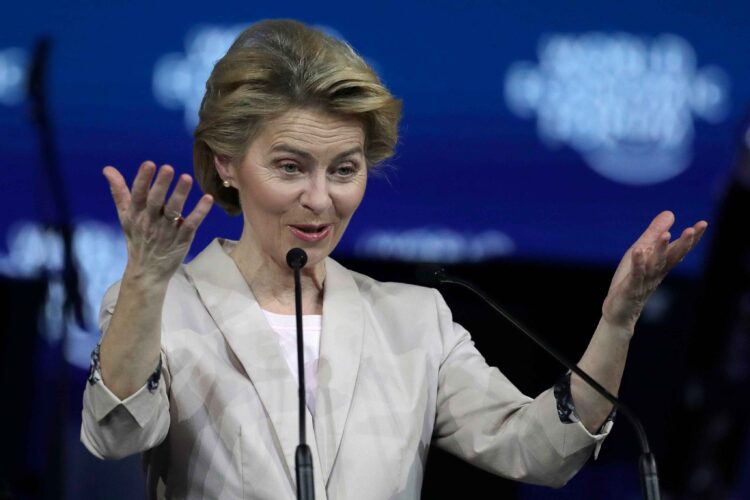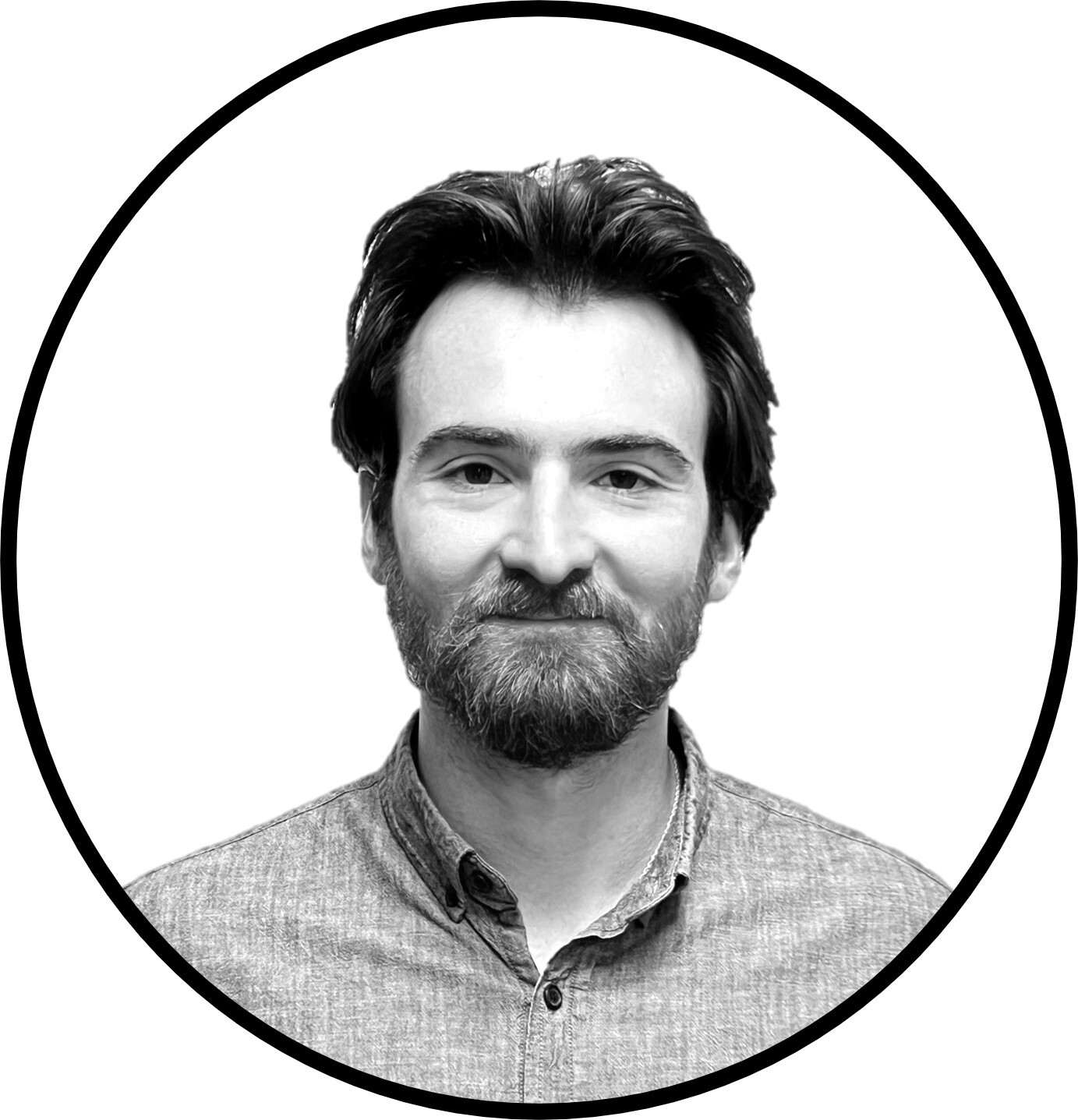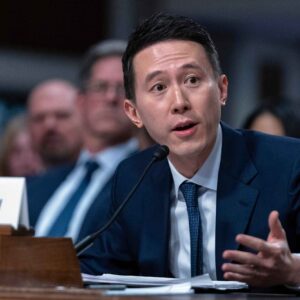At this week’s meeting of the World Economic Forum (WEF) in Davos, Switzerland, European Commission (EC) President Ursula von der Leyen delivered a special address on misinformation and called on global corporate leaders to participate in her bureaucracy’s censorship program.
“Excellencies, Ladies and gentlemen, Herr Klaus: your annual Global Risk Report makes for a stunning and sobering read,” she began, referencing the WEF’s new report on two-year and ten-year threats. “For the global business community, the top concern for the next two years is not conflict or climate. It is disinformation and misinformation, followed closely by polarization within our societies.”
Later in the speech, she circled back around to her bureaucracy’s plan for “tackling” disinformation, which she says has been the EC’s main focus in recent years. She cited the EC’s Digital Services Act, which claims that “online services” are being “misused by manipulative algorithmic systems to amplify the spread of disinformation, and for other harmful purposes” which violate our “fundamental rights online.”
In response, the EC aims to impose significant regulations on social media platforms, apps, and websites in the future. The Act has already been passed, but its mandates are still being rolled out over time. In February, EU member states are required to appoint Digital Services Coordinators who will enforce new rules on social media companies.
Learn the benefits of becoming a Valuetainment Member and subscribe today!
“With our Digital Services Act, we defined the responsibilities of large internet platforms on the content they promote and propagate. Irresponsible to children and vulnerable groups targeted by hate speech, but [they] also [have] a responsibility to our societies as a whole. Because the boundary between online and offline is getting thinner and thinner. And the values we cherish offline should also be protected online. And this is even more important in this new era of generative AI. Now, the World Economic Forum Global Risk Report puts artificial intelligence as one of the top potential risks for the next decade.”
As Valuetainment previously reported, von der Leyen is a major proponent of digital IDs, digital currencies, and government bodies that would regulate artificial intelligence.
The fascists in the European Union are preparing to shut down opposition speech.
Ursula von der Leyen, Pres of the EU Commission, describes how they plan to establish control over social media platforms, the last form of media outside of their control.
— Wall Street Silver (@WallStreetSilv) January 16, 2024
“Concerning,” billionaire and X owner Elon Musk wrote in reply to her speech.
Von der Leyen explained that “disinformation” is a problem in her eyes because it thwarts governments’ ability to gain the consent needed to impose their climate regulatory programs affecting energy, private vehicles, and food consumption, as well as their agendas on immigration and foreign policy. She then highlighted the importance of WEF’s 2024 theme, “Rebuilding Trust.”
“This is not a time for conflicts or polarization,” she asserted. “This is a time to build trust.”
Perhaps most interestingly, von der Leyen focused her message on the private sector, telling corporations that they are central to censorship:
“Many of the solutions lie not only in countries working together but crucially on businesses and governments, business and democracies, working together. It has never been more important for the public and private sector to create new connective tissue, because none of these challenges respects borders. They each require collaboration to manage risks and to forge a path forward. And this is what I want to talk today about.
While governments hold many of the levers to deal with the great challenges of our time, business[es] have the innovation, the technology, the talents, to deliver the solutions we need to fight threats like climate change or industrial-scale disinformation.”
She extolled Europe and the European Union’s leadership in “tackling” disinformation. “And this is more important than ever,” she went on.
“As we start 2024, the biggest electoral year in history, democracies across the world will head to the polls and half of the global population will be affected. This includes over 450 million people in the European Union, a union of 27 democracies where all of us have the right to speak our mind, to be ourselves, even if we are different from the majority…
Of course, like in all democracies, our freedom comes with risks. There will always be those who try to exploit our openness both from inside and out. There will always be attempts to push us off track, for example with disinformation and misinformation.”
Then von der Leyen launched into a tirade against Russia, saying that “nowhere has there been more of that than on the issue of Ukraine.”
She claims that Russia’s misinformation about its own powers and Ukraine’s weaknesses has led it to all but lose the war, lose half of its military capabilities, drive Ukraine into the arms of the EU, and become dependent on China. However, she also stressed that Ukraine needs to keep being supplied by money and weapons to withstand Russia.
The facts don’t exactly back von der Leyen up on this. Ukraine’s stalemate with Russia is so dismal that the White House has reportedly begun pressing for Zelensky to negotiate with Putin and accept lost territory, a far cry from previous rhetoric about not conceding an inch to the Russian Federation.
Shane Devine is a writer covering politics, economics, and culture for Valuetainment. Follow Shane on X (Twitter).



















Add comment